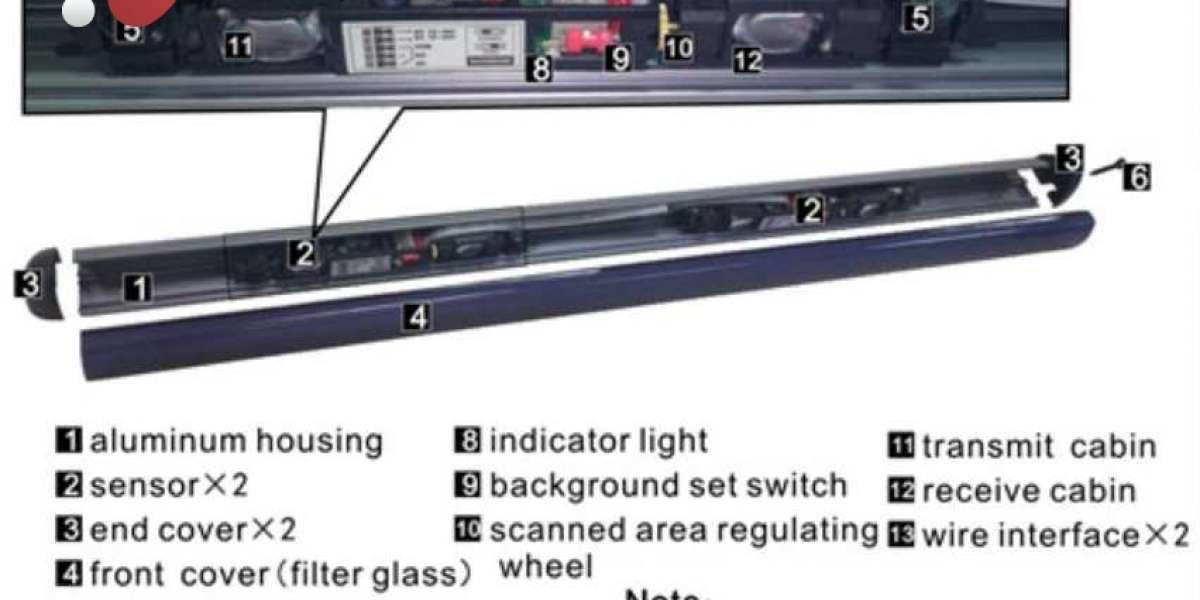Automatic sliding door sensors, as the name suggests, automate the process of opening and closing doors without requiring physical contact. This technology has become increasingly prevalent in various settings due to its numerous benefits, including enhanced accessibility, improved energy efficiency, and heightened hygiene standards.
One of the primary advantages of automatic sliding door sensors is their ability to facilitate effortless entry and exit. In busy environments such as shopping malls or airports, where foot traffic is constant, these sensors ensure smooth flow without the need for manual operation. This not only streamlines the movement of people but also minimizes congestion, particularly during peak hours.
Moreover, automatic sliding door sensors contribute to energy conservation by reducing unnecessary heat loss or gain. By automatically closing when not in use, these doors help maintain indoor temperatures, thereby lowering heating and cooling costs. This feature is especially beneficial in large buildings where maintaining optimal climate control is essential for occupant comfort and energy efficiency.
In addition to practicality, automatic sliding door sensors also prioritize hygiene and sanitation. Traditional doors require individuals to physically touch handles or push panels, increasing the risk of germ transmission. With sensor-operated doors, users can enter and exit spaces without direct contact, promoting a cleaner and healthier environment, particularly in healthcare facilities or food establishments where infection control is paramount.
The evolution of automatic sliding door sensors has been marked by advancements in sensor technology, allowing for greater precision and reliability. Modern sensors utilize a variety of techniques, including infrared, microwave, and motion detection, to accurately detect the presence of individuals and trigger door activation. This ensures consistent performance under diverse environmental conditions, ranging from low-light settings to high-traffic areas.
Furthermore, the integration of smart features has elevated the functionality of automatic sliding door sensors. Many systems now offer remote monitoring and control capabilities, allowing facility managers to adjust settings and track usage patterns in real time. This not only enhances operational efficiency but also enables proactive maintenance, minimizing downtime and prolonging the lifespan of the equipment.
In conclusion, automatic sliding door sensors represent a significant advancement in access control technology, offering a blend of convenience, efficiency, and hygiene. By automating door operations and optimizing energy usage, these sensors are transforming the way we interact with our surroundings. As technology continues to evolve, we can expect further innovations in this field, driving greater convenience and safety in our built environments.
https://stripchatpromotioncode.blogspot.com/2024/05/revolutionizing-entryways-power-of.html
https://sites.google.com/view/automatic-sliding-door-sensor/home
https://myvipon.com/post/975228/Revolutionizing-The-Power-Automatic-Sliding-Door-amazon-coupons
https://telegra.ph/Unlocking-Efficiency-The-Role-of-Automatic-Door-Sensors-in-Modern-Spaces-05-10
https://www.asianfanfics.com/story/view/1576214
https://www.diigo.com/item/note/avmhs/pbjm?k=40026dc7f65e7e44662ce1f6b50bd673













